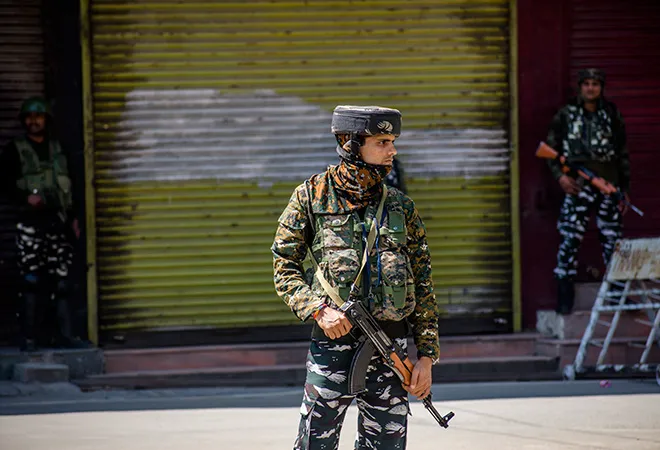Article 370 was a recognition of the India-Pakistan dispute over the State and the conditions of its accession to the Indian Union that made this state different from others in India. Eliminating the provisions of Article 370 means that Jammu and Kashmir loses this special status. Indeed, the current move makes Jammu and Kashmir’s status even lower than other Indian states because the State has also been downgraded to a Union Territory. In the Indian federal structure, Union Territories are provinces that are directly administered by the central government in Delhi and thus have even less autonomy than other Indian states. Furthermore, the State was divided into two, hiving off the Ladakh region which will become another Union Territory.
Given the potentially dire consequences of this action, why did the Indian government decide on this course of action? One reason is ideology: the BJP has for long argued that Article 370 should be removed, and Jammu and Kashmir fully integrated within the Indian Union. This was even listed in the BJP election manifesto.
There is an immediate danger: insurgency and terrorism in the State will intensify.
A more immediate reason may have been worries about the US withdrawal from Afghanistan and its consequences. Pakistan has significant control over the Taliban, which makes the US beholden to Pakistan because the US wants a semblance of stability as its forces prepare to withdraw. India has bad memories of Pakistan using Afghanistan as a base for training terrorists and sending them into India. An Afghanistan that once again falls under the Taliban — and indirectly under Pakistan and its murderous Inter-Service Intelligence (ISI) — is not a happy prospect for India.
Whatever New Delhi’s reasons, this move will likely be deeply unpopular in sections of the State, especially in the predominantly Muslim areas such as the Kashmir Valley. If any such protests are not handled with care, there is also the likelihood that Kashmiri anger could boost the simmering insurgency within the State.
This is one of the immediate dangers: that the insurgency and terrorism in the State will intensify. Indian security forces have been engaged in fighting this war for over three decades now. Though the insurgency has not ended, the Indian security forces have so far managed to keep it under control. A renewed insurgency and increased violence will have obvious grim consequences and it will deepen India’s internal security problems at a time when external security threats are growing.
Pakistan has sponsored terrorist groups that operate in Kashmir and in other parts of India, and terrorist attacks by such groups have repeatedly pushed India and Pakistan to the brink of war.
These external security threats are serious. Pakistan, which never abandoned its claim on all of Kashmir, has already protested India’s moves, though Islamabad itself had assimilated the territories it occupies. It is unlikely that Pakistan will deliberately engage in a direct military assault on India because it is a far weaker power — Pakistan’s GDP at about $250 billion is less than a tenth of India’s at $2.85 trillion. But it could always miscalculate. Pakistan has sponsored terrorist groups that operate in Kashmir and in other parts of India, and terrorist attacks by such groups have repeatedly pushed India and Pakistan to the brink of war. And Pakistan’s possession of a substantial arsenal of nuclear weapons makes the consequences of any such miscalculation far more dangerous, a worry for both India and the international community.
Another problem is China. China has taken a strong stand against the Indian move because Beijing says that it affects China’s claim over a part of Ladakh called Aksai Chin. China currently occupies Aksai Chin but it is part of India’s claim. Beijing forced a discussion at the UN Security Council on India’s action. In any case, China’s actions have antagonised India, and it seriously weakens a spluttering effort by the two sides to improve their ties after their last serious military confrontation, less than two years back.
New Delhi appears to be betting that the fallout from its decision can be managed and that the actual consequences may prove to be far less dire. Whether India’s bet pans out remains to be seen but this much is clear: it’s a big one.
This commentary originally appeared in Handelsblatt.
The views expressed above belong to the author(s). ORF research and analyses now available on Telegram! Click here to access our curated content — blogs, longforms and interviews.

